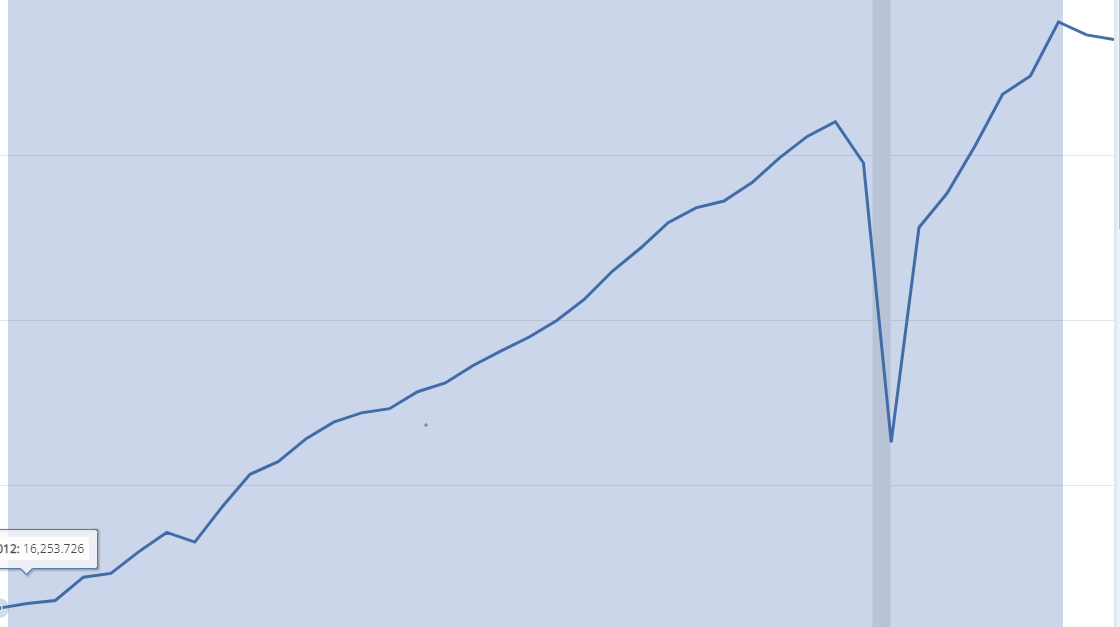Politics has seemed to have gotten involved in the recent debate about whether we are in a “recession.” In other words, there’s now a semantic debate about whether the downturn we are in is really a “recession.”
The background is that, recently, it was announced that we have just had two consecutive quarters of negative GDP growth in the U.S. And on top of that, a commonly used definition of a recession is just that — two consecutive quarters of negative GDP growth. The semantic debate is about whether that’s a good definition of the term “recession”, or (even) whether it’s “the” definition at all for a recession (as if terms only have one definition or meaning…but why would someone think a thing like that?).
But even if the current downturn isn’t a “recession”, why does that matter? Is a slumping economy not a bad thing? Obviously, a slowing economy (and a deeply slowing economy) is bad.
Before we had two consecutive quarters of negative GDP growth — confirmed not too long ago — there was (and still is) a genuine debate about whether that’s a good/helpful definition of the term ‘recession’. In other words, is two consecutive quarters of negative GDP growth a good definition of a recession? Whether it is or not, obviously, a lot of people ARE defining a recession as that. And, again, two consecutive quarters of negative GDP growth is a bad thing, regardless of what you call it. Thus, one can’t escape reality (and the conceptual debate) by trying to change the terms/language. That’s because there’s a distinction between concepts and language. Terms matter, but to use that as an excuse to then (also) ignore the actual substance of the argument/debate is obviously fallacious.¹


I think, for starters, the conventional definition of a technical recession (as two consecutive quarters of negative GDP) is a good definition. I don’t know if it’s perfect, but it’s far from clear why it should matter whether it is perfect. Certainly, one can dream up counter-examples to this definition of recession, but you can do that with a lot of terms (so I don’t know if anyone should be particularly bothered by that fact). For example, isn’t it counter-intuitive to claim that a situation with two consecutive quarters of SLIGHTLY negative GDP would qualify as a “recession”? Perhaps. But perhaps, instead, the intuition is arising from failing to make a distinction between bad and ‘mild’ recessions.
The conclusion is that this semantic debate around the term ‘recession’ — insofar as it is being debated in political circles — is largely a (fallacious) smokescreen.² On the other side of that smokescreen is the reality of an economy that is slowing by a substantial degree.³
Notes
¹It would also be fallacious to dismiss this entire post (or my main point) by claiming that I’m ‘motivated’ by ‘conservatism’ (or ‘liberalism’). For one, I’m not. And secondly, even if I were, that doesn’t mean that my point is incorrect.
²People can sense they’re being (so-called) “lied” to even if they don’t exactly know why or how.
³I’m not claiming there isn’t any other evidence that we are in an economic slump. For example, an inversion of ‘the’ yield curve.


















